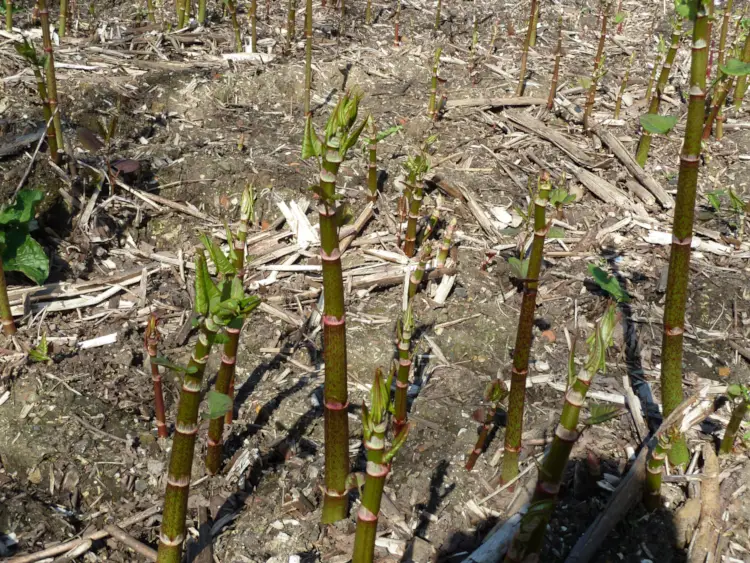Japanese knotweed: New High Yield Biomass Energy Source
01-04-2011
[***UPDATE!!! – NOTE TO JOURNALISTS – THIS WAS A HIGHLY AMUSING APRIL FOOLS’ DAY JOKE, SO PLEASE STOP CONTACTING US TO DISCUSS IT’S VALIDITY – THANK YOU – END OF UPDATE***]
Scientists are reporting today that Japanese knotweed (Fallopia japonica) could hold the answer to the Peak Oil crisis and provide a sustainable, clean source of energy to generate massive amounts of electricity in huge knotweed biomass power stations.
Extracts from Japanese knotweed rhizomes have been used in traditional Chinese medicine for centuries. Compounds such as resveratrol, which are derived directly from knotweed rhizomes, have been proven to cure many ailments, from baldness to heart disease and cancer.
Incredibly, scientists have found that the powerful antioxidant and health giving compounds in knotweed rhizomes, such as resveratrol, are also responsible for the plant’s ability to generate massive amounts of energy. And it is from the capturing and release of this energy in combined heat and power (CHP) plants that has generated excitement amongst the scientific community and governments keen to increase their targets for the delivery of sustainable, biomass electricity.
Tests in Norfolk have shown that by pyrolysing knotweed rhizomes in low temperature ovens, the gas and hydrocarbon fuels generated are only slightly lower in yield than some brown coals. Due to the impressive rate of growth of knotweed it is hoped that huge swathes of the Norfolk and Suffolk flatlands can be converted into knotweed fields that can be cropped and turned into fuel for a number of massive power plants along the eastern seaboard.
Enough energy should be generated in just a few years to power the enormous demand for electricity in London. It is also hoped that the huge amount of heat generated from the knotweed could be used to crack seawater into hydrogen and oxygen molecules that could then be used to power fuel cell hubs and vehicles in urban areas.

